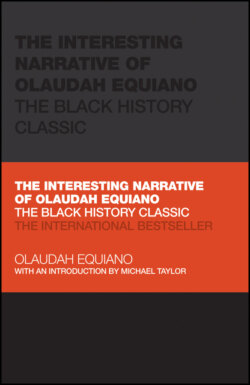Читать книгу The Interesting Narrative of Olaudah Equiano - Olaudah Equiano - Страница 7
ENSLAVEMENT
ОглавлениеWhen Spanish and Portuguese merchant-adventurers annexed swathes of the Americas in the sixteenth century, they found that white colonists were unwilling to undertake the back-breaking work needed to cultivate tropical crops. Enslaved African labour became the grotesque lifeblood of the New World economy. By the 1750s, with the French and the British having built their own slave empires, some 50,000 Africans were being enslaved and trafficked across the Atlantic every year.
It was Equiano's misfortune that he was born in the mid-1740s in what was then the kingdom of Benin, a prime hunting ground for European slave traders.1 At the age of 11, a rival nation kidnapped Equiano before selling him to British merchants for the price of 172 ‘little white shells’. When this was paid, he endured ‘six or seven months’ of captivity before arriving at the coast. There he saw the sea for the first time, and a slave ship anchored and awaiting its cargo. Equiano records in the Narrative that these scenes ‘filled me with astonishment, which was soon converted into terror when I was carried on board … I was now persuaded that I had gotten into a world of bad spirits, and that they were going to kill me’. It is also the first time that Equiano has seen Europeans, and even their appearance alarms him.
Few people have described the horrors of the Middle Passage – that is, the ocean voyage from the African coast to the American colonies – with as much colour and clarity as Equiano. ‘When I looked round the ship and saw a large furnace of copper boiling’, he recounts, ‘and a multitude of black people of every description chained together, every one of their countenances expressing dejection and sorrow, I no longer doubted of my fate’. After weeks on the ocean in the sultry sailing season, with the enslaved crammed every which way into the bowels of the ship, ‘the air soon became unfit for respiration, from a variety of loathsome smells, and brought on a sickness among the slaves, of which many died, thus falling victim to the improvident avarice … of their purchasers’. And there were other indignities on such voyages: Equiano would later witness sailors ‘gratify[ing] their brutal passions with females not yet ten years old’.
Unloaded but apparently ‘unsaleable’ in Barbados, Equiano's captors took him to Virginia, where he witnessed plantation slavery for the first time. Weeding plants and gathering stones, loneliness crippled him: he shared no language with the other enslaved Africans, let alone the colonists. Even indoors, where enslaved people could expect a less gruesome life, he was shocked at how black women were clapped in iron muzzles while cooking dinner for the planters. Here, Equiano was called Jacob; during the Middle Passage, he had been called Michael. Yet when he was purchased by the British naval officer Michael Henry Pascal, and bundled onto a vessel laden with tobacco bound for England, Equiano received yet another name. Gustav Vasa was the sixteenth-century king of Sweden who led his nation to independence from Denmark and, following the success of a London play based on his life, the Swedish monarch had acquired a cult following in Britain. Accordingly, Pascal renamed Equiano in honour of Vasa (misspelling the original name to make him ‘Gustavas Vassa’). It took time for Equiano to assent: ‘When I refused to answer my new name’, he recalled, ‘which at first I did, it gained me many a cuff’.
